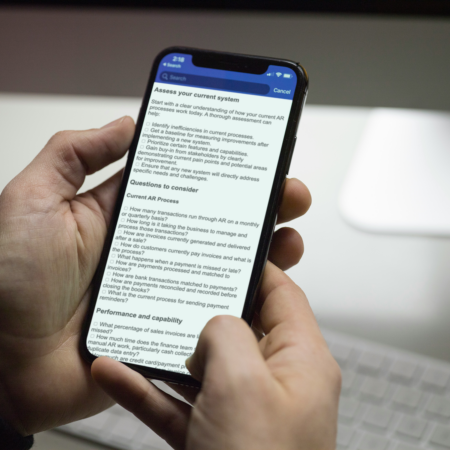
One of the pillars of your organization’s financial management system is the general ledger. Cloud-based accounting software has certainly made general ledger accounting much easier, but only with the right software features. Let’s take a brief look at the fundamentals behind general ledger accounting and examine what software features make managing this process a breeze.
What is a General Ledger?
To review, the general ledger is the database that contains all of the business transactions of the organization. The transactions are listed in the chart of accounts where they’re grouped based on their type: assets, equity, liabilities, expenses, and revenue. These transactions are closed out and a trial balance is created to report each account’s balance. This is what’s used to develop financial statements.
The general ledger is crucial for ongoing business performance analysis because it provides a comprehensive record of all business financial activities. It’s important to maintain this data accuracy as much as possible through efficient accounting.
General Ledger Accounting: The Basics
General ledger accounting relies on the double-entry method to record transactions. This means that all transactions are posted at least two times in order to account for and balance the effect of each transaction.
For example, when a company gains a loan of $5K the cash of the company increases, therefore an asset entry of $5K is created. But simultaneously, a liability transaction is also created. This is because the loan must be paid off. To account for the repayment of the loan, the cash entry also creates a debit and credit entry.
This lets you visualize the precise effects of all your company’s activities. At the same time, this helps maintain the accuracy of what you’re reporting since transactions are listed twice. You then balance your finances by cross-examining the various entries generated by the single transaction.
General Ledger Accounting Software for Your Business
When it comes to managing your general ledger accounting effectively, your choice of software plays a major role. Here’s what features to look for:
- You’ll want to invest in software that’s flexible, letting you easily adapt your general ledger to new requirements without coding. Being able to configure your system for adjustments rather than having to use code is much faster and easier.
- Your accounting software should also have a flexible tagging system for your general ledger. This lets you organize your ledger in a way that makes sense for your company’s operations and financial needs.
- Validating data entries in the general ledger is much easier and more accurate with a collaborative accounting system. Through increased visibility over company data, you and your team can pinpoint errors and validate correct amounts as an efficient unit.
- Robust reporting features are also important for general ledger accounting. Isolating and reporting on specific entries and accounts helps you truly understand what is driving financial data. This also eliminates guesswork and provides definitive information needed to make the best business decisions possible.
- Ensure general ledger accuracy with an accounting system that is connected to the source transactions – applications that initiate transactions. Manually logging each entry into the accounting system is time-consuming. It also opens your ledger up to potential human errors. Generating a transaction that automatically creates the entries in your general ledger saves time and maintains data accuracy between operations and accounting systems. For example, with Salesforce, you can create an order with one application on the platform and generate a ledger entry automatically with a native accounting software like Accounting Seed.
See Accounting Seed in action
Get a close-up view of how accounting on Salesforce can eliminate the need for costly integrations—and silos of mismatched information—by sharing the same database as your CRM.


